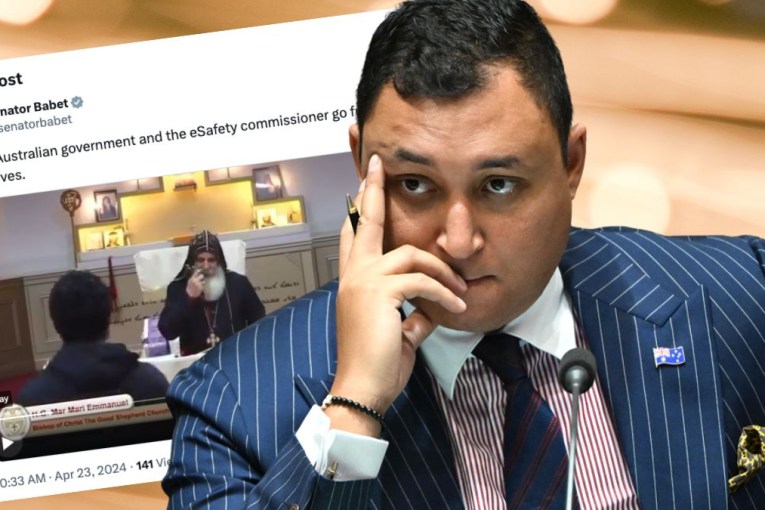‘This is the end of the fair go’: ACTU boss
• Households to bear the brunt
• Medical research a big winner
• At a glance: your 5 minute guide to the budget
• Budget ‘breaks promises’: Labor
• ‘We could have cut harder’, says Joe Hockey
Treasurer Joe Hockey has handed down his first federal budget, touted as the toughest in recent political history. Now he must set about selling it. And based on first reactions, that will be no easy task.
Universal health care is over. Medicare is finished. They are commoditising health care, and it’s just the first step to privatising health care in this country.
Those whose industries and sectors are most affected gave The New Daily their verdicts. Leave yours in the comments section below.
Ged Kearney
ACTU President
This is the end of the fair go for Australians. This is a complete and total assault on what we would call the social safety net or the social wage. It’s the biggest assault we’ve seen on Medicare, on welfare, on education, on public sector jobs and on public services, I think, ever.
Sadly, I think we are headed down a path where we have entrenched poverty setting us on a US-style working poor. Basically, universal health care is over. Medicare is finished. They are commoditising health care, and it’s just the first step to privatising health care in this country.
They are making it more expensive to be educated. They are cutting pensions. They are, astoundingly, penalising young people to the point where it’s something that a civilised country like Australia should not see. The attack on young workers is the unkindest attack of all.
There is also no pain, as the Treasurer promised, across the board. I can see no pain whatsoever for multinational corporations, for very wealthy people, for big business. In fact, they’re going to get a $4 billion tax cut.
Matthew Linden
Director of Public Affairs at Industry Super Australia
This is a budget that recognises a lot of our long term challenges, which is good, but it misses the opportunity to find some more imaginative solutions.
Our view is that this probably asks too much of workers in manual occupations to continue working until they’re 70. And the changes in relation to pension indexation and the government super guarantee will have quite a significant impact on retirement incomes – about a 25 per cent reduction in total retirement incomes for someone aged 45 on average earnings.
The government’s got a big task in bringing the budget back to surplus, but we think they could have been a bit more imaginative with some of the solutions to get there.

Dr Stephen Duckett
Health Programs Director at Grattan Institute
It’s a mean budget in the health sector. Patients will be the losers. States and Territories will have their funding slashed.
Co-payments are a very, very bad way of saving money. They may be penny-wise but pound-foolish. That is, they may cost more money in the end if people defer getting needed care.
There are significant cuts to state funding. The States were looking forward to the Commonwealth sharing half the cost of increasing hospital activity. They are now not going to do that.
Innes Willox
CEO of Australian Industry Group
The government has big fiscal ambitions for this budget and is backing them with decisive steps to put the budget on a firm long-term footing. However, with the economy at a pivot point characterised by fragile confidence, flat lining productivity, and below-trend growth, the budget also carries some risks to Australia’s short-term economic health.
The government’s proposals to rein in spending growth and to reintroduce fuel tax indexation are difficult measures spread across all sections of the community – including businesses. In the face of the undisputed longer-term pressures on Australia’s public finances the measures will put the budget on a more secure foundation and will make the Australian economy more productive and resilient.”
The so-called ‘Budget Repair Levy’ which will take the top marginal income tax to 49 per cent for the next three years, is an inefficient way to raise additional revenue. It will detract not only from discretionary consumer spending and therefore business income but it will also dampen incentives to save and invest at a time when we need to lift investment by Australian businesses.
Dr Richard Yeo
Executive Manager, National Interest Services Group at the Australian Road Research Board
Overall, investment in roads is a good thing, and massive investment in roads over six years is a very good thing.
There are typically around four jobs created per $1 million, so every $1 billion is 4,000 jobs. I think it’s really good for employment.
Roads are very good for the economy. It’s our largest publically owned asset, and they are in need of rebuilding and maintenance.
David Atkin, CEO of Cbus Super
The increase in the pension age raises concerns about how people will access income when they are unable to continue working and unable to access the age pension.
The budget announcement means that a construction worker in their mid 40s now, who has subjected their body to punishing physical work, will not be able to supplement their superannuation savings with the pension until they are 70.
In physically demanding industries many people won’t be able to work longer so there will be the potential of a financial gap emerging between accessing super and topping up retirement income with the pension.
We also note that the Government did not announce in the budget speech the reintroduction of the Low Income Superannuation Contribution (LISC). This is a disappointing decision that means some 3.6 million low income earners are the only ones that will not receive a tax advantage through superannuation savings.
Dr Cassandra Goldie
CEO of the Australian Council of Social Services
The Budget divides rather than mends. It entrenches divisions between those with decent incomes, housing and health care and those without them. It undermines the fabric of our social safety net with severe cuts to health, disability support, income support, community services and housing programs.”
A few measures are in the right direction, targeting those for whom the age of entitlement should be coming to an end: Abolishing the Seniors Supplement, Capping Family Tax benefit part B at $100 000, introducing a levy for people earning over $180,000, and taking super payments into account in assessing eligibility for the Senior’s Health Card. Corporate welfare is also shaved. However, most of these measures will inflict little damage or will only be felt for a short time.
Shane Oliver
Chief Economist, AMP Capital Investors
It’s tough but reasonable. I guess the big fear was that the budget cutbacks would impact the next year or so adversely in other words that the spending cutbacks and budget cutbacks would be frontloaded. When you look at the actual policy decisions for the next financial year, it’s only $1.7 billion in savings, which is certainly not aggressive.
The savings really only kick in or build up over the subsequent years, particularly 2016-17 and 2017-18, so I think the government’s done the right thing. They haven’t whacked the economy in the short term, which is good, and they’ve also applied most of the savings to three or four years down the track when they’re really going to be needed. That’s when the budget deficit is going to start deteriorating again.
[polldaddy poll=8042650]









